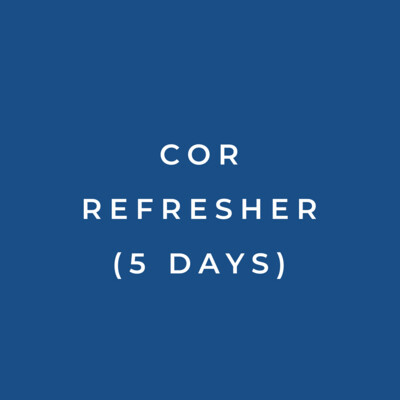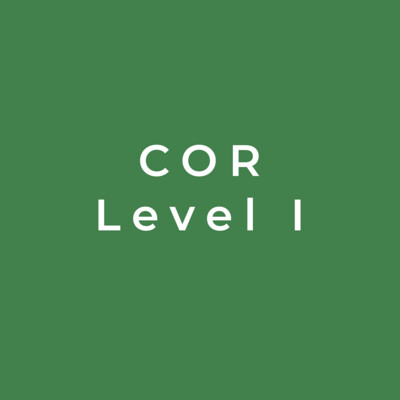Exceptional Customer Service: The Key to Building Loyalty
2-Days Virtual or In-person
Number of Participants
Delivery Method
If In-Person Delivery List Location Here
Enter your text
Preferred Start Date (*minimum 10 business days from order date)
Please choose a date
Preferred Start Time
Please choose
Delivery Time Zone
Please choose
What else would you like us to know?
Enter your text
In stock
1
Save this product for later
Exceptional Customer Service: The Key to Building Loyalty
Description
Whether your business is large or small, product- or service-based, this workshop will help you develop a strategy for developing and then keeping your most important asset, your customers – both internal and external customers.
Customers are more likely to become loyal customers when they have a personal relationship with people inside your organization. This workshop helps participants to understand how to develop a loyalty-driven culture, through individual attention to customer needs, as well as a savvy process for developing high customer service standards and for nurturing those relationships.
Who Should Attend
Anyone who would like to take more control over how they develop and then maintain loyal customers.
What You Will Learn
After attending this workshop, participants will be able to:
- Identify the key indicators of a service culture
- Take personal responsibility for customer satisfaction
- Understand the relationship between effective communication and quality service
- Anticipate customers’ needs
- Build strong partnerships with internal and external customers
- Clarify their customers’ expectations
- Develop and practice empathy through active listening
- Identify ways that they can go beyond customer expectations
- Assess their personal attitudes while dealing with a difficult moment of truth
- More effectively handle customer complaints
- More confidently respond to upset customers
- More easily handle customer telephone calls
- Help to create a customer service mission statement
- Develop customer service performance standards for themselves and others
Course Outline
What Exceptional Customer Service Looks Like
- Identifying personal examples of exceptional customer service
- Key Indicators of a Service Culture
- Assessing participants’ current organizational/departmental service culture improvement opportunities
Taking Personal Responsibility for Customer Satisfaction
- How to make a personal difference in the way that you work with customers
- Creating a personal definition of customer service
Anticipating Customers’ Needs
- Identifying how to anticipate customers’ needs
- Identifying how knowing customers’ needs would help participants’ work easier
Building Strong Customer Service Partnerships
- Overview of the 10 Building Blocks that represent typical internal and external customers’ needs
- Identifying individual participant’s internal/external customer needs and how to better meet them
- Creating Building Block action plans for customers
Seeking to Understand Customer Ideas, Thoughts, and Emotional Reactions to Their Situations
- Defining empathy
- Using Active Listening to exercise empathy
- Building empathy into participants’ communication skills
Going Beyond Customers’ Expectations
- Considering how to exceed internal/external customers’ expectations
- Identifying participants’ options
Keeping Your Cool & Serving Your Customers
- Personal attitudes during difficult Moments of Truth
- Working with upset customers
- Handling customer requests, problems, & complaints – knowing what you can and cannot do for the customer and how to communicate that, while maintaining appropriate flexibility
- Learning how to you “no” and “yes, but”
- How to facilitate Service Recovery
Effective Use of the Telephone with Customer Service
- Identifying telephone annoyances
- Telephone pitfalls and benefits
- Uncovering telephone guidelines
- How to handle call holds and transfers with appropriate telephone etiquette
Creating Customer Service Mission Statements
- Identifying who and what benefits from a customer service mission statement
- Identifying its desirable characteristics
- Practicing a step-by-step process for how to create a customer service mission statement with participants’ teams
Developing Customer Service Performance Standards
- Identifying the necessary complexity of the standards
- How to check the standards to make sure that they will create their intended purpose
- How to monitor the standards and make necessary changes over time
Up to 30 students
- Virtual Classes will be a live, Instructor lead class in Zoom for Government, a virtual technical assistant VTA will be available to assist students with any technical issues, take roll, administer evaluations, and distribute certificates of completion. Course materials will be provided electronically.
- Onsite classes will be held at your location. The instructor will travel to you. Materials will be printed and shipped to your site. A sign-up sheet will be provided for student to enter their name (as they want it on their certificate) and the email address to send the certificate to. GSA travel costs will be added to the course fee. Contact us for a travel estimate.
- A minimum of 2 weeks lead time is needed for virtual classes, 3 weeks for onsite classes.
Questions? Contact our training coordinator via email or phone at (202) 843.5447.
You May Also Like
Exceptional Customer Service: The Key to Building Loyalty
2-Days Virtual or In-person
Number of Participants
Delivery Method
If In-Person Delivery List Location Here
Enter your text
Preferred Start Date (*minimum 10 business days from order date)
Please choose a date
Preferred Start Time
Please choose
Delivery Time Zone
Please choose
What else would you like us to know?
Enter your text
In stock
1
Save this product for later
Exceptional Customer Service: The Key to Building Loyalty
Description
Whether your business is large or small, product- or service-based, this workshop will help you develop a strategy for developing and then keeping your most important asset, your customers – both internal and external customers.
Customers are more likely to become loyal customers when they have a personal relationship with people inside your organization. This workshop helps participants to understand how to develop a loyalty-driven culture, through individual attention to customer needs, as well as a savvy process for developing high customer service standards and for nurturing those relationships.
Who Should Attend
Anyone who would like to take more control over how they develop and then maintain loyal customers.
What You Will Learn
After attending this workshop, participants will be able to:
- Identify the key indicators of a service culture
- Take personal responsibility for customer satisfaction
- Understand the relationship between effective communication and quality service
- Anticipate customers’ needs
- Build strong partnerships with internal and external customers
- Clarify their customers’ expectations
- Develop and practice empathy through active listening
- Identify ways that they can go beyond customer expectations
- Assess their personal attitudes while dealing with a difficult moment of truth
- More effectively handle customer complaints
- More confidently respond to upset customers
- More easily handle customer telephone calls
- Help to create a customer service mission statement
- Develop customer service performance standards for themselves and others
Course Outline
What Exceptional Customer Service Looks Like
- Identifying personal examples of exceptional customer service
- Key Indicators of a Service Culture
- Assessing participants’ current organizational/departmental service culture improvement opportunities
Taking Personal Responsibility for Customer Satisfaction
- How to make a personal difference in the way that you work with customers
- Creating a personal definition of customer service
Anticipating Customers’ Needs
- Identifying how to anticipate customers’ needs
- Identifying how knowing customers’ needs would help participants’ work easier
Building Strong Customer Service Partnerships
- Overview of the 10 Building Blocks that represent typical internal and external customers’ needs
- Identifying individual participant’s internal/external customer needs and how to better meet them
- Creating Building Block action plans for customers
Seeking to Understand Customer Ideas, Thoughts, and Emotional Reactions to Their Situations
- Defining empathy
- Using Active Listening to exercise empathy
- Building empathy into participants’ communication skills
Going Beyond Customers’ Expectations
- Considering how to exceed internal/external customers’ expectations
- Identifying participants’ options
Keeping Your Cool & Serving Your Customers
- Personal attitudes during difficult Moments of Truth
- Working with upset customers
- Handling customer requests, problems, & complaints – knowing what you can and cannot do for the customer and how to communicate that, while maintaining appropriate flexibility
- Learning how to you “no” and “yes, but”
- How to facilitate Service Recovery
Effective Use of the Telephone with Customer Service
- Identifying telephone annoyances
- Telephone pitfalls and benefits
- Uncovering telephone guidelines
- How to handle call holds and transfers with appropriate telephone etiquette
Creating Customer Service Mission Statements
- Identifying who and what benefits from a customer service mission statement
- Identifying its desirable characteristics
- Practicing a step-by-step process for how to create a customer service mission statement with participants’ teams
Developing Customer Service Performance Standards
- Identifying the necessary complexity of the standards
- How to check the standards to make sure that they will create their intended purpose
- How to monitor the standards and make necessary changes over time
Up to 30 students
- Virtual Classes will be a live, Instructor lead class in Zoom for Government, a virtual technical assistant VTA will be available to assist students with any technical issues, take roll, administer evaluations, and distribute certificates of completion. Course materials will be provided electronically.
- Onsite classes will be held at your location. The instructor will travel to you. Materials will be printed and shipped to your site. A sign-up sheet will be provided for student to enter their name (as they want it on their certificate) and the email address to send the certificate to. GSA travel costs will be added to the course fee. Contact us for a travel estimate.
- A minimum of 2 weeks lead time is needed for virtual classes, 3 weeks for onsite classes.
Questions? Contact our training coordinator via email or phone at (202) 843.5447.
You May Also Like






